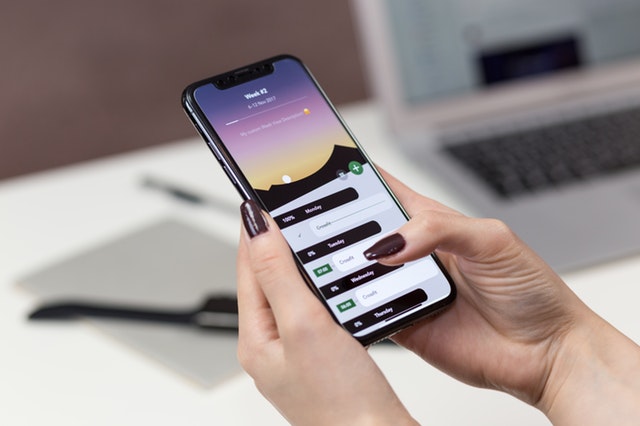|
|
Here's how small businesses can have an app too
Mobile apps have been in existence since the early days of PDAs, but they really took off since around 2008 with the launch of Apple iPhone. Today there are over 4.5 million apps on Google and Apple compbined. That's a lot of apps! and makes many small business owners wonder "do I need an app?". If you have decided to have one, here are some options for you. Responsive Websites
Responsive websites have special HTML code that tells your browser how to show the website so that it loads nicely on any kind of device. For example a table with four columns on a desktop would automatically show up as a table with 1 or 2 columns on a mobile so as to fit nicely on its small screen. Also, the text size of a paragraph would automatically adjust based for better readability. More than 90% of the users browse websites on a mobile device and many continue further exploring the same website on their other devices, such as on a laptop or a tablet. So, irrespective of whether or not you may need an app, having a responsive website is not just a choice these days, it's a necessity! And when you create such as website, you'd wonder if you'd need an app anymore; your answer will most probably be "no". Web Apps
This all may sound like a "hack" but believe it or not, the World is moving towards this direction. For example the famour taxi cab company Uber uses web app technology. Many large retailers also use web apps for building their apps as well. Native App
The list could go on, but as you can see, if you are a local business, you'd most probably not need these things. Which one is better? Responsive Website, Web App or Native App?Honestly, there's no correct answer to this question. In terms of the cost, a web app would normally cost almost as much as what a responsive website would. A native app however could cost much more. So if you are looking for a better, cheaper way to interact with your customers, a responsive website may just be the best option for you. If you are seriously thinking about having an app for your business, feel free to contact us. We'd be happy to discuss more and show you what'd work best for you.
Tags: small business,native app,mobile app,web app,responsive website
------
Gautam Tandon Mar/09/2020 |
|
© 2024 Ellipsis Marketing LLC - Terms of Use & Privacy Policy Website Accessibility |


 First off, a well designed website is more than sufficient for pretty much any small business. From appointment setting to showing directions, playing videos, to recording voice, and many other things in beetween, today's websites can do it all. You just need to make sure that the website shows up nicely on users' mobile, tablet and desktop. In technical terms that's called a "responsive website".
First off, a well designed website is more than sufficient for pretty much any small business. From appointment setting to showing directions, playing videos, to recording voice, and many other things in beetween, today's websites can do it all. You just need to make sure that the website shows up nicely on users' mobile, tablet and desktop. In technical terms that's called a "responsive website". Web apps are a family of apps that aren't really an "app" per say but look like one! For a normal user it'd be hard to tell if the "app" they are using is a "web app" or a "native app" (we'll talk about native apps later). At a very high level these apps are nothing but a website that is solely developed for the purpose of being seen on a mobile device. Then, with some basic native app development, the website is loaded through, what's called a "web viewer". A "web viewer" is a special kind of browser that can be opened from within an app. That way, when you open such an "app", all you are really interacting with is the "website" that is being rendered by the app's "web viewer". This is a great cost effective solution if you really need an "app".
Web apps are a family of apps that aren't really an "app" per say but look like one! For a normal user it'd be hard to tell if the "app" they are using is a "web app" or a "native app" (we'll talk about native apps later). At a very high level these apps are nothing but a website that is solely developed for the purpose of being seen on a mobile device. Then, with some basic native app development, the website is loaded through, what's called a "web viewer". A "web viewer" is a special kind of browser that can be opened from within an app. That way, when you open such an "app", all you are really interacting with is the "website" that is being rendered by the app's "web viewer". This is a great cost effective solution if you really need an "app". If you really need a "real app", that is an app that is developed using iOS and Android native libraries, doesn't use a "website" behind the scene, then "native app development" would be the way to go. However, think twice before venturing into this path. Besides being a costly venture, it may not even provide the kind of experience your users may be looking for. To give you an example, let's say if you are a local dentist; how many of your customers would have a need to download your app to say pay their bills or view their reports? All that can be easily provided via website so why create a bad experience by having them download yet another "app"? That said, there are few places where a "native app" may be your only choice. These are:
If you really need a "real app", that is an app that is developed using iOS and Android native libraries, doesn't use a "website" behind the scene, then "native app development" would be the way to go. However, think twice before venturing into this path. Besides being a costly venture, it may not even provide the kind of experience your users may be looking for. To give you an example, let's say if you are a local dentist; how many of your customers would have a need to download your app to say pay their bills or view their reports? All that can be easily provided via website so why create a bad experience by having them download yet another "app"? That said, there are few places where a "native app" may be your only choice. These are: